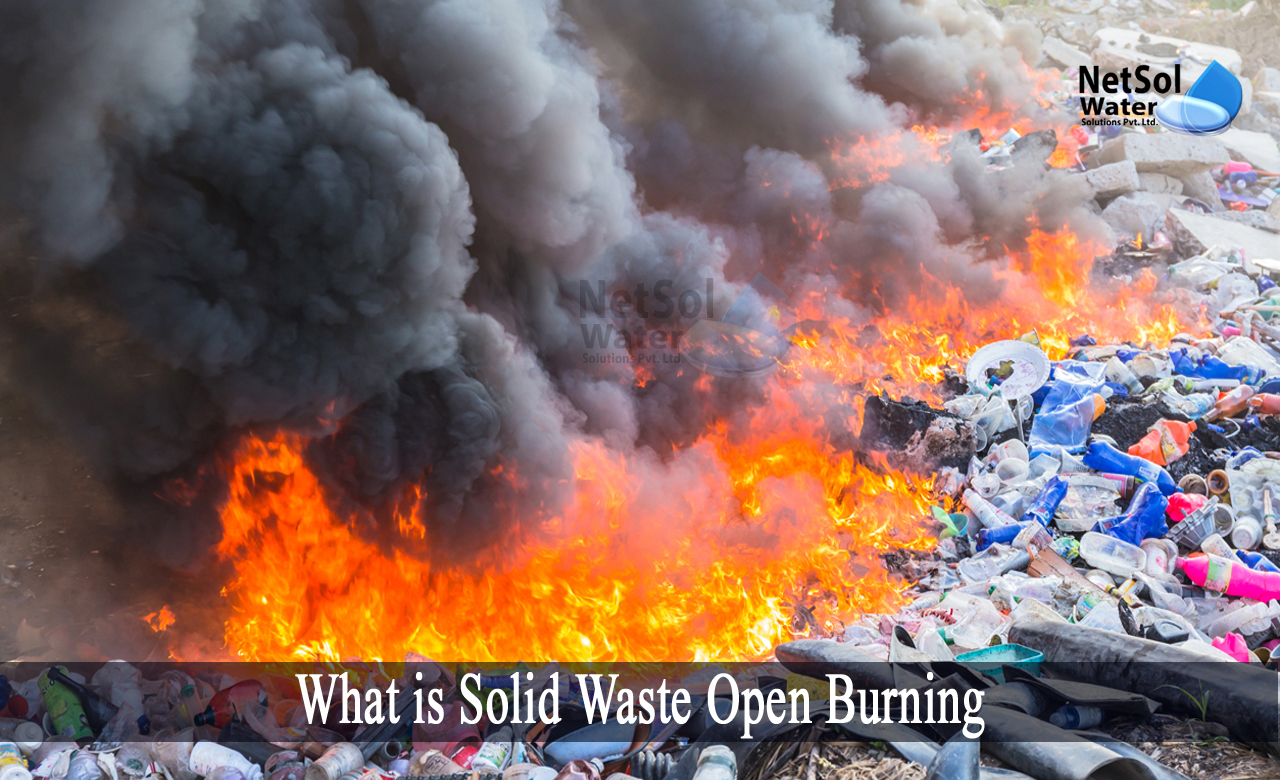Introduction
Waste may be intentionally burned in towns with poor waste management systems, to free up space at dumpsites, to promote salvaging of non-combustible materials (such as metals) for profit, or to utilize as a heat source.
In this article, we will go over solid waste open burning and its effect on the environment.
What is solid waste open burning?
Waste burning is a major source of dangerous carcinogens, such as dioxins and furans, as well as black carbon, a short-lived climate pollutant that contributes to climate change, increased melting in polar regions due to soot and black carbon deposition on snow and ice, and a variety of human health issues.
Types of solid waste open burning
A: Residential open burning
Residential open burning happens mostly because of its convenience and poor collection, making it especially dangerous in low-income, developing nations that struggle to collect even 50% of the total MSW produced.
Domestic open burning is the indiscriminate burning of waste by individuals that is either never collected, or is collected and put away from dumpsites. This can happen right outside the house or in areas where waste is illegally dumped, such as roadside or other open public spaces.
This sort of open burning is uncontrolled, and no efforts are normally made to limit the health, and environmental consequences of the burning.
Other variables influencing residential open burning
The purpose of such waste management practices usually is to reduce the quantity of waste conveniently, and easily or in some cases to save money on collection.
However, other factors can be involved. When waste (particularly organic waste) is not collected quickly enough, it can emit strong smells, which can be reduced by open burning.
B: Deliberate open burnings: Landfills and open Dumpsites
Waste in landfills and open dumpsites in underdeveloped countries, is frequently burned to minimize the quantity, which is often loaded above its capacity or has an unknown capacity due to the lack of planning involved, in the establishment of open dumps.
Open burning in landfills and open dumps is especially damaging to surrounding populations, because it occurs close to the ground rather than up high through stacks, where pollutants can be distributed more effectively to limit their health impacts.
C: Spontaneous Open Burnings: Landfills and Dumpsites
Fires can start spontaneously and unintentionally in enormous mounds of debris, in open dumps and landfills. The fires are most likely caused by a lack of waste treatment in these disposal places.
The impacts of such fires are similar to those produced from, deliberate open burning of waste in landfills, and resemble intentional landfill fires for the most part. Similarly, unintentional dump fire airborne emissions, and ash leftovers might contain dangerous, concentrated contaminants.
Steps to reduce solid waste open burnings
The Waste Management equips to reduce open waste burning by:
· Aiding in the development of integrated solid waste management systems, which improve waste collection and limit the presence of waste, in streets or informal dumpsites prone to open burning.
· Waste separation efforts that bring informal waste pickers into the formal sector, are frequently included in integrated solid waste management systems.
· Supporting enhanced landfill management, which has the potential to reduce the occurrence of spontaneous fires.
· Conduct community outreach to increase waste prevention, and
· To educate the public on the dangers of open waste burning.
Conclusion
Open waste burning emits a number of hazardous pollutants into the air, and can increase soil pollution, water pollution, and food contamination. Also, open waste combustion emits enormous volumes of greenhouse gases, into the environment.
Because, the problem is only expected to worsen as more waste is produced globally, actions such as, enhanced collection, improved disposal, recycling, or widespread awareness of the dangers of open waste burning, must be implemented wherever practicable.
How can we assist?
Netsol Water is an organization that was founded to provide comprehensive, design, fabrication, installation, and maintenance services, related to solid waste management, and water and wastewater problems.
Our waste management professionals will handle your system and respond to your demands, as if they were our own, allowing you to focus on what you do best on a daily basis.For better waste management services, we offer organic waste convertors, food waste convertors, waste treatment plants, and many more equipments.
Netsol Water is Greater Noida-based leading water & wastewater treatment plant manufacturer. We are industry's most demanding company based on client review and work quality. We are known as best commercial RO plant manufacturers, industrial RO plant manufacturer, sewage treatment plant manufacturer, Water Softener Plant Manufacturers and effluent treatment plant manufacturers. Apart from this 24x7 customer support is our USP. Call on +91-9650608473, or write us at enquiry@netsolwater.com for any support, inquiry or product-purchase related query.



